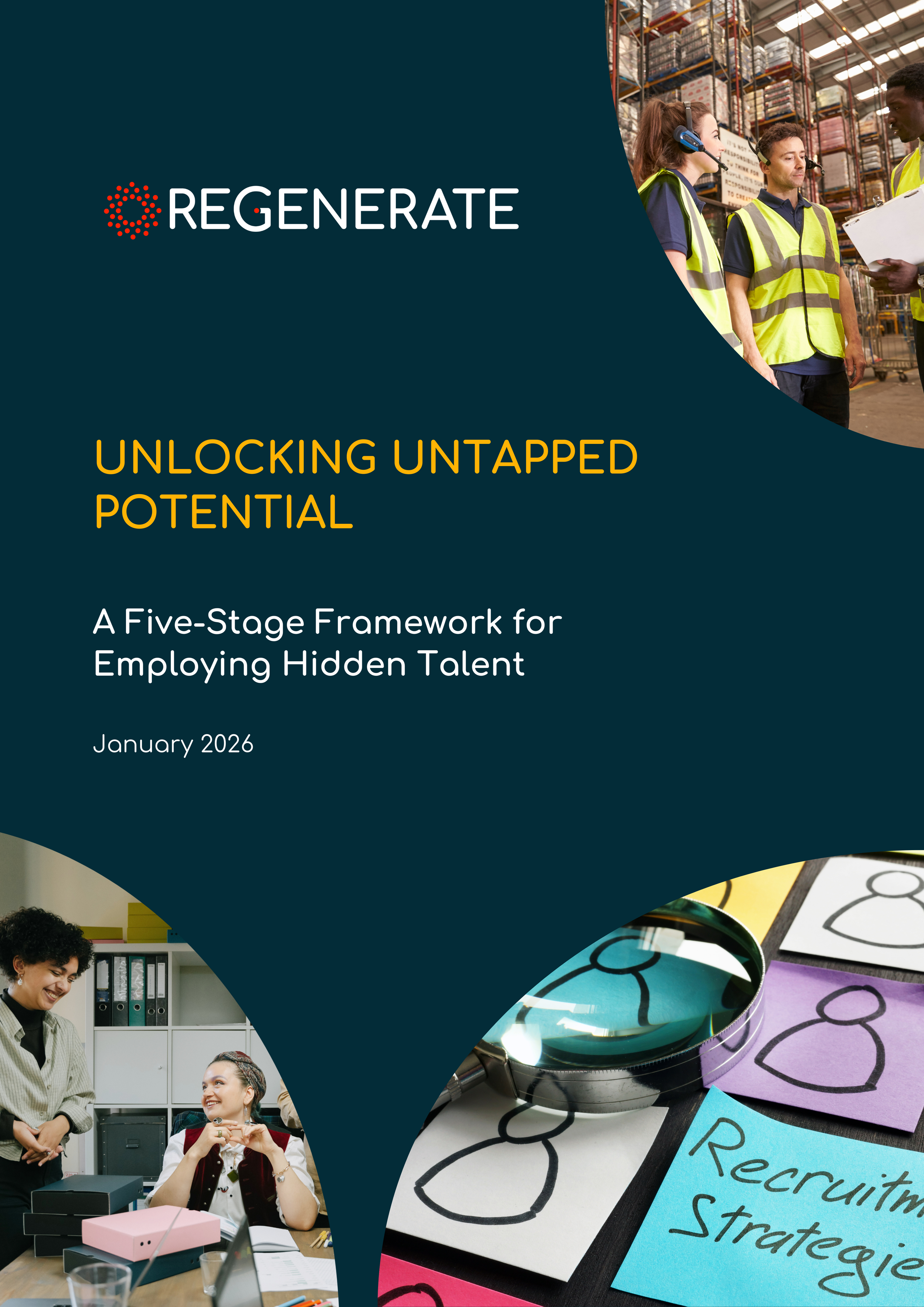The Good Jobs Project
Filling labour shortages with marginalised talent.
The Good Jobs Project is committed to transforming the way businesses approach recruitment, unlocking the full potential of purpose-driven models. By embracing inclusivity and intentionally targeting marginalised groups, we can bridge the gap between labour shortages and individuals seeking meaningful employment. Together, let's build a future where everyone has access to good jobs and businesses thrive.
Transforming the way businesses approach recruitment by making it easier to access talent from marginalised communities.
About the project
We envisage a business community that recognises the advantages of diversity and who intentionally seek marginalised talent to fill vacancies. Doing so will create organisational value and an inclusive ecosystem of opportunity for all.
For the full power of businesses to be realised, we want the friction and barriers that hold businesses back from accessing marginalised talent to be eliminated and for employers to instinctively desire and possess the knowledge on how to engage these valuable individuals.
That’s why we started the Good Jobs Project.
Our vision is to lead the way in helping employers to attract, retain and empower marginalised talent, creating a ripple effect that reaches across geographies, industries, and all marginalised groups.
We would love you to join the Good Jobs Project, whether you're interested in supporting our work in the Midlands or exploring how our model can be adapted to your region or industry.
Together, let's build a future where everyone has access to good jobs and businesses are thriving.
Showcasing the Midlands Employer Alliance as a model to replicate
The Midlands Employer Alliance is a pioneering coalition of HR and talent leaders from major companies, established in partnership with Severn Trent.
It serves as a blueprint for similar initiatives in other regions or industry sectors. Launched at the end of 2023, the Alliance is dedicated to dismantling employment barriers by helping employers across the Midlands fill their vacancies with talent from marginalised backgrounds.
Throughout 2024, the Alliance has expanded, continuing to inspire and support employers in creating inclusive opportunities that benefit both their organisations and the wider community.
Read more here: goodjobsproject.co.uk/midlands-steering-group
Current members of the Midlands Employer Alliance include:
We invite you to partner with the Good Jobs Project, whether you're interested in supporting our work in the Midlands or exploring how our model can be adapted to your region or industry. By partnering with us, you will have the opportunity to lead from the front in driving inclusive employment, either by joining our existing initiatives or by helping to activate new groups that address the unique needs of your area.
Ready to dive deeper?
Visit The Good Jobs Project's new website to learn more about our work and join the movement.
Stay informed
Sign up for our newsletter to hear about our latest initiatives and success stories.
What else is ReGenerate working on?
The Good Jobs Project is just one of the ways ReGenerate is driving positive change. Explore our other initiatives here.
Latest publications
Explore our most recent publications, articles, and upcoming events.







